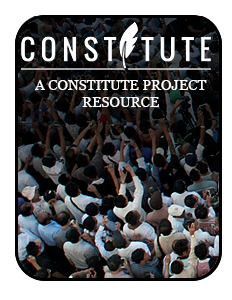Tropical forest management techniques: a review of the sustainability of forest management practices in tropical countries
An assessment of the state of forestry in terms of management of different forest types for the sustainable supply of goods and services. The sustainability of current practices are discussed and recommendations and technical requirements for improved management are outlined
Forest resources and plantations of the Gambia
A medium size report that comments on the overall situation of data on forest resources in Gambia. It is composed of nine parts including the following topics: forest classifications, statuses of Gambian forests, land use shifts, degradation of forests, forest categories, forest management, wildlife management and forest uses and related issues. A large number of tables are given.
Mauritania Civil Procedure, Commercial and Administrative Code
Forest genetic resources
Multi-Channel Food Supply Systems to Francophone African Cities.
The issue of supplying food to African towns will remain a major challenge in the coming years in view of the steep urban growth, the small increase in extensive agricultural production and the risks of bottlenecks in the supply and distribution circuits. Yet it is very difficult to summarize this issue for French-speaking Africa.
Irrigation in the near east region in figures
FAO activities and Achievements and its Role in Combating Desertification in the Near East Region
This paper outlines FAO's past and present activities on combating desertification, with particular emphasis on the Near East Region, in an attempt to mobilise all the potential efforts towards the establishment of an adequate strategy to enable this particular part of the world to build efficient regional and national programmes to combat resource degradation, restore land productivity and ach
Program on Farmer-Managed Irrigation Systems and Support Services. Phase II. Vol.7 - Lift irrigation in West Africa: challenges for sustainable local management. Final report
Transformations foncières dans la vallée du Sénégal: enjeux politiques et ethniques
Depuis 1983 la Mauritanie est engagée dans un processus de réforme foncière. Le système de la tenure foncière traditionnelle du sol est aboli. L'individualisation est de droit. La réforme a pour but la mise en valeur accélérée de la terre afin d'augmenter la production alimentaire du pays.
Constitution of Mauritania 1991 (rev. 2012)
The constitution was approved by 97.94% of voters.
The development of aquaculture and culture based fisheries in Ghana: the social and cultural contexts
Agriculture, forestry and fishing are important sectors of Ghana's economy and improvement in the performance of these sectors is central to the country's current economic recovery programme.1 The severe economic decline which the country went through between the early 1970's and the early 1980's affected poorer socio-economic groups in particular 2 through depressed wage levels and increased u




